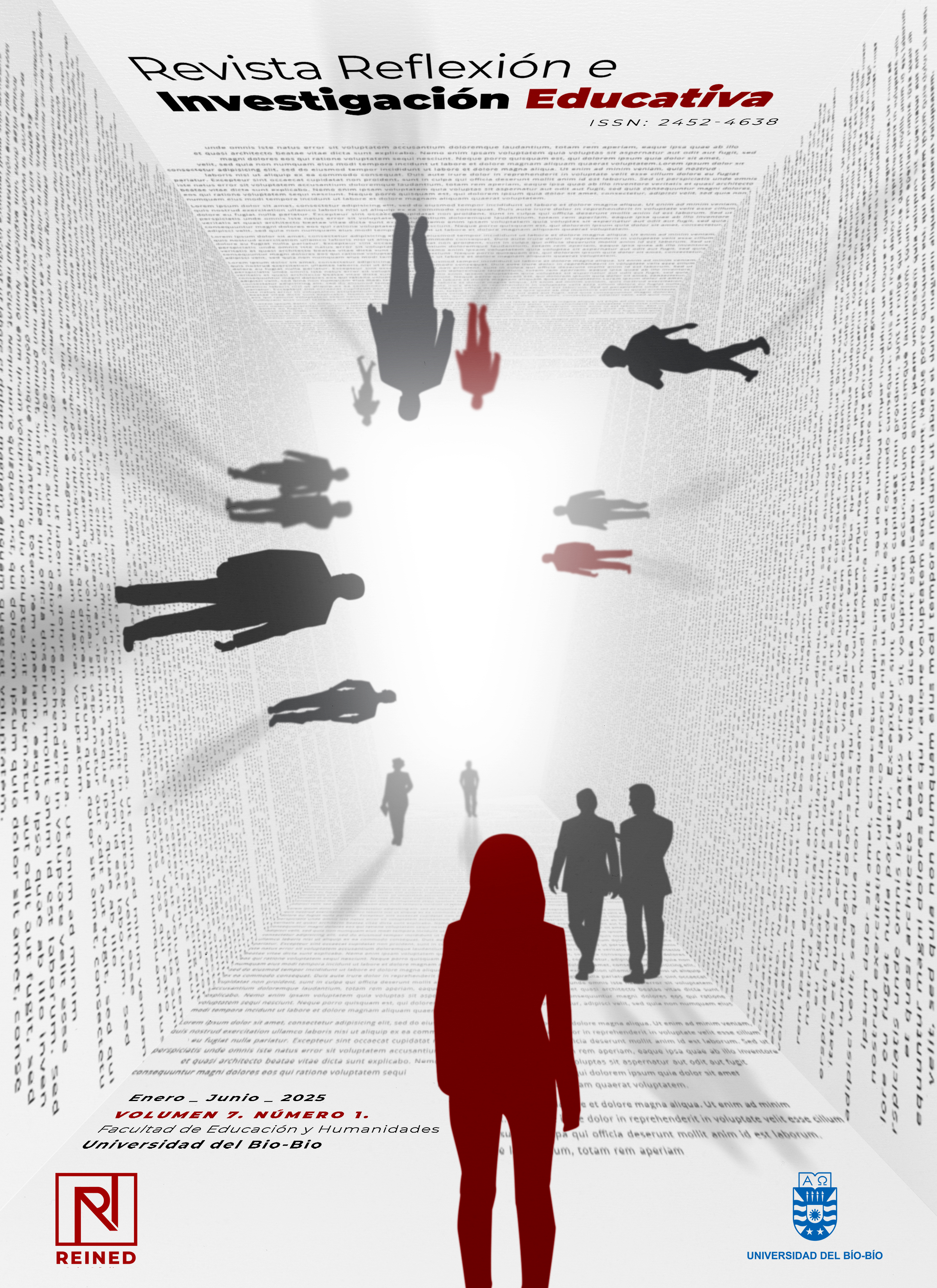MULTIPLIERS: A STRATEGY FOR PROMOTING THE SYSTEMS ENGINEERING PROGRAM IN INDIGENOUS AND MIGRANT COMMUNITIES
Main Article Content
Abstract
One of the great challenges of education in systems is to achieve a greater diversity of students, in this case both indigenous and migrant students. Although the literature reports a large number of projects focused on promoting STEM programs among women, motivation in indigenous and migrant communities has not yet been sufficiently addressed. Therefore, it is important to propose the strategy of multipliers as a basis for promoting indigenous and migrant students to be motivated to enroll in a career in systems engineering. The multiplier strategy is understood as the integral accompaniment provided by a mentor leader. Ideally, the multiplier should be from the same culture as the person being supported, although the possibility that a multiplier leader from another environment could perform this task is not ruled out. It is concluded that the strategy of multipliers is a way to help indigenous and migrant students to study systems engineering and, together with this, to reach a greater diversity of students in the program, who in turn become new multipliers in their communities.
Article Details
References
Agreda Sigindioy, T. M. (2024). Transformando la educación: el papel de la formación intercultural del profesorado para la integración de estudiantes migrantes internacionales. Innovaciones Educativas, 26(40), 223–234. https://doi.org/10.22458/ie.v26i40.4816 DOI: https://doi.org/10.22458/ie.v26i40.4816
Alexandra, V., Ehrhart, K, H., & Randel, A. E. (2021). Cultural intelligence, perceived inclusion, and cultural diversity in workgroups. Personality and Individual Differences, 168, 1-6 https://doi.org/10.1016/j.paid.2020.110285 DOI: https://doi.org/10.1016/j.paid.2020.110285
Bolaño, I. M., Jaime D. U., & Malka C. C. (2024). Experiencias de la Internacionalización en las Instituciones de Educación Superior (IES) en Latinoamérica. Editorial CECAR.
Casado Arjona, A. (2020). Promoción de la cultura del buen trato por líderes estudiantiles del sexto grado del nivel secundario del Centro en Artes Dr. Fabio Amable Mota [Tesis doctoral, Universidad Iberoamericana (UNIBE)]. https://repositorio.unibe.edu.do/jspui/handle/123456789/1180?locale=es
Currie, L., & Escudero, G. P. (1993). El uso de los conceptos de multiplicador en la literatura económica. Cuadernos de economía, 13(18), 416-431 https://dialnet.unirioja.es/servlet/articulo?codigo=4935062
Fry, R., Kennedy, Y., & Funk, C. (2021). STEM jobs see uneven progress in increasing gender, racial and ethnic diversity. Pew Research Center. https://www.pewresearch.org/wp-content/uploads/sites/20/2021/03/PS_2021.04.01_diversity-in-STEM_REPORT.pdf
Galvis-Molano, D. L., Silva-Arias, A. C., & Sarmiento-Espinel, J. A. (2022). Logro educativo de las instituciones con estudiantes de minorías étnicas en Colombia. Entramado, 18(1), 1-16. https://doi.org/10.18041/1900-3803/entramado.1.7505 DOI: https://doi.org/10.18041/1900-3803/entramado.1.7505
Grant, P., & Söderbergh, C. (Eds.). (2020). Minority and Indigenous Trends 2020-Focus on technology. Minority Rights Group.
Hang, K., Schrock, T., Ostrander, T. J., Berg, R., Menezes, T., & Wang, K. (2024). Industry Mentoring and Internship Experiences at a Community College Baccalaureate Program in Software Development. In Proceedings of the 55th ACM Technical Symposium on Computer Science Education V. 1 (SIGCSE 2024). Association for Computing Machinery, New York, NY, USA, 456–462. https://doi.org/10.1145/3626252.3630878 DOI: https://doi.org/10.1145/3626252.3630878
Herrington, T. K., & Tretyakov, Y. P. (2012). Intercultural Communication in the Global Classroom. The Journal of Transnational American Studies, 4(1). https://doi.org/10.5070/t841012843 DOI: https://doi.org/10.5070/T841012843
Kwapisz, M., Hughes, B. E., Schell, W. J., Ward, E., y Sybesma, T. (2021). “We’ve Always Been Engineers:” Indigenous Student Voices on Engineering and Leadership Identities. Education Sciences, 11(11), 675. https://doi.org/10.3390/educsci11110675 DOI: https://doi.org/10.3390/educsci11110675
Lambrechts, A.A. (2020). The super-disadvantaged in higher education: barriers to access for refugee background students in England. Higher Education, 80, 803–822 https://doi.org/10.1007/s10734-020-00515-4 DOI: https://doi.org/10.1007/s10734-020-00515-4
Leithwood, K., & Louis, K. (2011). Linking Leadership to students learning. Editorial Jossey Bass.
Leydens, J. A., Morgan, T. K. K. B., & Lucena, J. C. (junio, 2017). Mechanisms by Which Indigenous Students Achieved a Sense of Belonging and Identity in Engineering Education [presentación de paper]. 2017 ASEE Annual Conference & Exposition, Columbus, Ohio. https://doi.org/10.18260/1-2--28661 DOI: https://doi.org/10.18260/1-2--28661
Millán Guzmán, B. (2023). El efecto multiplicador para capacitación interna. [Tesis de maestría, Universidad la Salle, México]. https://repositorio.unibe.edu.do/jspui/handle/123456789/1180
Mora, R. P. (2021). Minorías étnicas, desigualdad y educación en tiempos de pandemia. Dialogia, 38, 1-23. https://doi.org/10.5585/38.2021.20441 DOI: https://doi.org/10.5585/38.2021.20441
Núñez Brizuela, C. M. (2021). Proyecto de tutorías para estudiantes mujeres de la carrera de ingeniería en sistemas #yoteayudo. Encuentro Internacional de Educación en Ingeniería. https://doi.org/10.26507/ponencia.1598 DOI: https://doi.org/10.26507/ponencia.1598
Ortega, S., Patiño, J.C., & Rojas, C. (2019). Global environment, ethics and society. EAN Editions.
Ortega-Ferreira, S., Mejía Corredor, C., Patiño Prieto, J. C., & Senior Mesa, P. A. (2023). Medición de Diversidad: actitudes y situaciones de discriminación: Estudio en una Institución de Educación Superior Colombiana. Revista Prisma Social, 41, 4–26. https://revistaprismasocial.es/article/view/4971
Park, J., Denson, N., Yamp., & Bowman, N. A. (2013). Does socioeconomic diversity make a Difference? Examining the effects of racial and socioeconomic diversity on the campus cli-mate for diversity. American Educational Research Journal, 50(3), 466–496. https://doi.org/10.3102/0002831212468290. DOI: https://doi.org/10.3102/0002831212468290
Peters, L. (2022). Creating the Global Classroom: Approaches to Developing the Next Generation of World Savvy Students (1st ed.). Routledge. DOI: https://doi.org/10.4324/9781003123903-1
Pinto Vieira, E. (2022). A liderança multiplicadora e sua influência no processo discipulador. Vía teológica, 22(44), 170–197. https://periodicos.fabapar.com.br/index.php/vt/article/view/253
Rodríguez-Pérez, G., Nadri, R., & Nagappan, M. (2021). Perceived diversity in software engineering: a systematic literature review. Empirical Software Engineering, 26(5), 38-102. https://doi.org/10.1007/s10664-021-09992-2 DOI: https://doi.org/10.1007/s10664-021-09992-2
Salmi, J., & D’Addio, A. (2020). Policies for achieving inclusion in higher education. Policy Reviews in Higher Education, 5(1), 47–72. https://doi.org/10.1080/23322969.2020.1835529 DOI: https://doi.org/10.1080/23322969.2020.1835529
Villa Lever, L. (2022). Sin sueños no hay futuro: aspiraciones de indígenas universitarios. Revista Mexicana de Sociología, 84(4), 941-978. https://doi.org/10.22201/iis.01882503p.2022.4.60388
Windchief, S., Arouca, R., & Brown, B. (2018). Developing an Indigenous Mentoring Program for faculty mentoring American Indian and Alaska Native graduate students in STEM: a qualitative study. Mentoring & Tutoring: Partnership in Learning, 26(5), 503–523. https://doi.org/10.1080/13611267.2018.1561001 DOI: https://doi.org/10.1080/13611267.2018.1561001

